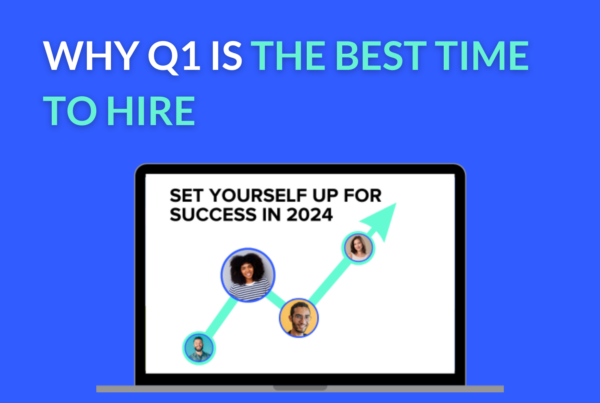WealthTech is one of the most popular verticals within the FinTech space. With an increase in funding from $930 million in 2014 to over $3 billion in 2018, the sector’s ability to provide an edge to any and all of its users has solidified its position in the business world.
In many ways, the sector has transformed how advisors and consumers address wealth management. It has given rise to a new generation of financial technology companies that create digital solutions to transform the investment and asset management industry, as well as bringing new challenges and opportunities to the market.
But the question remains – what is WealthTech?
What Is WealthTech?
WealthTech refers to the use of innovative technologies such as artificial intelligence and Big Data to provide an alternative to traditional wealth management firms, with the aim of making wealth management and investment services more efficient and automated.
WealthTech has proven increasingly popular over the past few years as wealth management has adapted to major changes, including greater regulatory responsibilities and compliance requirements, shifting customer tastes and expectations, and increased competition from tech-savvy start-ups that are continuing to both threaten and transform the investment-management business model.
Services & Solutions
WealthTech sits under the umbrella of FinTech, but is itself an umbrella term which covers a wide range of technologies that focus on wealth management, with these being:
Robo-Advisors:
Perhaps the most popular form of WealthTech, robo-advisors offer financial advice or investment management online with little to no human interaction. This automated service uses machine-learning algorithms to determine the ideal investment portfolios for customers, based on their risk preferences. By driving down fees and pursuing a much wider audience than traditional wealth advisors, robo-advisors are able to generate revenues through lower margins and higher volumes of transactions.
The total Assets Under Management (AUM) for robo-advisors reached $980 million in 2020, and according to a research report from Business Insider Intelligence, robo-advisors “will manage around $4.6 trillion by 2022.”
Robo Retirement:
This is another version of robo-advisors that have also proved highly popular in the sector. Companies within this category specialize in managing consumer’s retirement savings. Robo-retirement services differ from human financial planners in that these platforms create retirement portfolios, manage assets, provide strategies, and recommend plans generated by a computer system.
Micro-Investing:
Micro-investing allows consumers to save, deposit and invest a much smaller amount of money than has traditionally been the case. It’s possible to both automate the process, authorising the platform to manage your portfolio based on your personal preferences, or you can choose your own EFT’s and stocks. Given this option, micro-investing provides a more interactive experience than using a robo-advisor.
It’s common for micro-investing start-ups to have a subscription-based/ flat fee payment scheme, which has dramatically levelled the playing field in more being able to take part in investment opportunities. As well as this, more people are learning about investing as platforms tend to guide you with recommendations and explanations.
Digital Brokers:
Digital brokers are online platforms and software tools that enable access to stock market information and investment. A broker would normally charge a high flat fee per trade, which is why investing has traditionally only been accessible to those who are in a position to invest large amounts. With digital brokerage platforms varying in their target audience, they supply analayzes and a variety of investment instruments for both experienced investors and beginners.
Within the category, ‘social trading’ has proved popular for the less-experienced market. Through this feature, users are able to shadow or automatically copy the trades that more experienced traders do.
Investment Tools & Portfolio Management:
Investment tools and portfolio management are a B2B segment of WealthTech. The typical aspects of investment tools includes comparison tools, research analayzes and access to networks of advice. Portfolio management solutions help financial institutions with asset class analayzes, and with the help of automation and organizations, they also increase the efficiency of most tasks.
Financial Services Software:
This category is comprised of companies that provide specialized software to support the adoption of digital wealth management and investing strategies. Companies such as Plaid Technologies are included in this category, with Plaid being a software intermediary that securely connects financial application users with their personal bank accounts.
Future Prospects
When we consider the innovative technologies WealthTech has introduced to the financial sector up to this point, it’s plausible that there will be many new and exciting advances to come in the future of the sector. It is even reasonable to say that WealthTech will eventually replace financial advisors entirely!
Many believe that for the sector to continue advancing, data security needs to become a number one priority for its advisors. Every company that misses out on this is likely to become less relevant in the future. As well as this, predictive analytics technology must also be considered a priority to a WealthTech company’ future survival, as this helps to win insights into client needs and behaviours which allows for an improved service and product going forward. In 2019, asset management firms with predictive analytics actually achieved an average 11% increase in the number of customers.
Cloud computing is also set to remain a major trend in wealth technology as it provides for sustainable growth. The rise of blockchain has created new asset classes and it is set to remain. Finally, quantum computing will continue to help wealth managers deal with information overload, as well as improving their investment decisions in the long run.
At Storm2, we’re dedicated to working with the most innovative WealthTech companies worldwide. If you’re a WealthTech business looking to build and grow your team, we have technically skilled candidates ready for you to connect with. If you have a vacancy you’d like to discuss, get in touch to brief our team of WealthTech recruiters.







